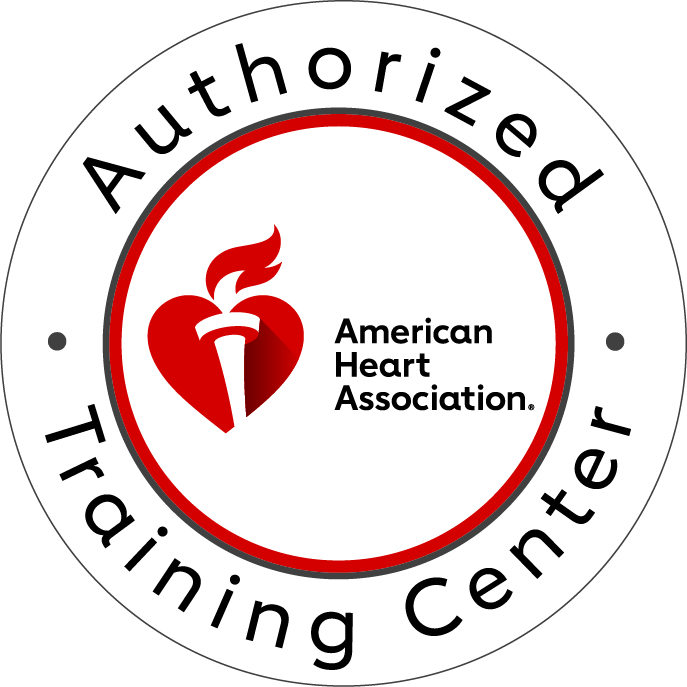
CPR & Related Training, Business and Community
Now is the time to learn CPR for the first time or update your skills!
h3
- All CPR courses are interactive and provide skills-based training.
- We take infection control very seriously and all equipment is sterilized before and after training. Ask the Program Coordinator if you want to know other protocols implemented since the COVID-19 pandemic.
- Do not participate in training if you are ill or you have a medical condition that would prevent you from practicing CPR.
- Electronic feedback devices are used to measure the correct rate and depth of compression.
- A minimum of five students is required to hold the class.
- Electronic American Heart Association certificate and the card will be emailed to participants after the class is completed.
Community Service
The following courses are free of charge and developed by the American Heart Association
Opioid Education for Non-Clinical Staff and Lay Responders – Course in English
Educación sobre opiáceos para personal no médico y rescatadores legos – Course in Spanish
Click on the "Register" button of the course you require, choose the most convenient
date, and register for your training.
Select a Course
Basic Life Support (BLS) AKA CPR for Healthcare Provider
This course is designed for healthcare professionals and emergency responders who need to learn how to perform high-quality CPR along with other lifesaving skills in various settings, both in-hospital and out-of-hospital. This CPR training is a requirement for students in Emergency Medical Services (EMS), Fire Science, Health Sciences, and Nursing programs.
In the classroom, you will participate in simulated clinical scenarios and work with an AHA BLS Instructor to complete basic life support skills practice and skills testing. You will also complete a written exam. The exam will be an open resource, so you must purchase a textbook, which is available in our GCSC bookstore. This is a hands-on course. Dress comfortably and in layers.
Basic Life Support Renewal (BLS Renewal)
This course is for the healthcare professional who needs to renew certification. To participate in this course, you must hold a current AHA BLS card. A textbook is required during this training.
First Aid with CPR and AED
The Heartsaver First Aid course teaches students the critical skills needed to respond to and manage a first aid, choking or sudden cardiac arrest emergency in the first few minutes until emergency medical services (EMS) arrive.
When someone is injured at work or home, being trained in first aid techniques, CPR and the Automated External Defibrillator (AED) will allow you to help until more advanced care arrives. Knowing what to do in an emergency will give you the confidence to assist someone in need.
Learn how to treat bleeding, sprains, broken bones, shock, heat-related emergencies, and other first-aid emergencies. Applying CPR techniques and using an AED can help you save someone unresponsive and not breathing due to a number of medical causes.
Dress comfortably and in layers. This is a hands-on course.
AMERHA-216 certification is available upon request for the merchant mariner credential.
CPR with AED
Anyone can learn CPR – and everyone should! This course is ideal for business and the community.
The Heartsaver CPR with AED course teaches students the critical skills needed to respond to and manage choking or a sudden cardiac arrest emergency in the first few minutes until emergency medical services (EMS) arrive.
Sudden cardiac arrest is a leading cause of death in the United States. The failure to receive cardiopulmonary resuscitation (CPR) significantly lessens a victim’s chance of survival. Most often it is a bystander with the skills to perform CPR that can make a difference in those who suffer a cardiac arrest outside a hospital. A large number of cardiac arrests occur in the home-so the life you save with CPR will most likely be someone you love.
A cardiac arrest is not the same as a heart attack, although a heart attack may lead to a cardiac arrest. If a cardiac arrest occurs, blood stops flowing through the body. Breathing with eventually cease as well. Without a supply of oxygen, the cells in the body start to die. After 4 to 5 minutes without oxygen, brain cells begin to die resulting in brain damage and death.
CPR keeps oxygenated blood flowing around the body to keep the vital organs alive. CPR itself will not restart someone’s heart, but it can keep them alive until a defibrillator arrives which can deliver an electrical shock to restart the heart.
Dress comfortably and in layers. This is a hands-on course.
AMERHA-216 certification is available upon request for the merchant mariner credential.
We look forward to seeing you in class!
